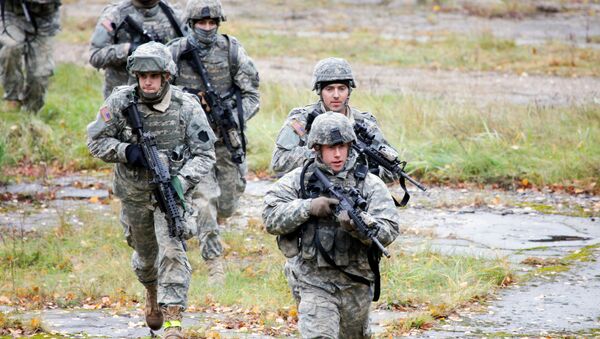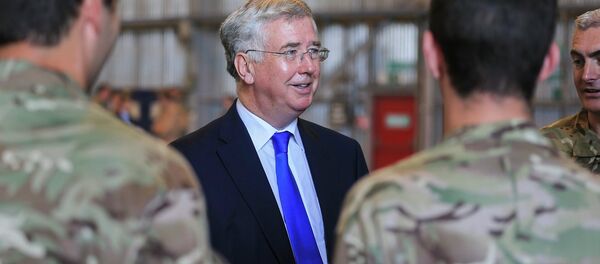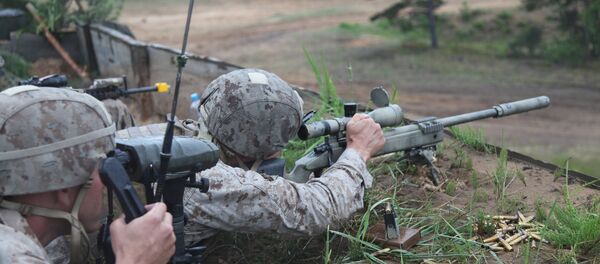He said that NATO’s buildup in Europe "under the pretext of a nonexistent eastern threat" and the military bloc's tactic of creating a buffer of "frontline states" on the border with Russia was used to "reconfigure" the European space and could potentially tip the existing balance.
Lukashevich pointed to the governments of three Baltic nations – Latvia, Lithuania and Estonia – as those behind the new military drive. In February, NATO defense chiefs announced they were to set up command and control posts there, as well as in Bulgaria, Romania and Poland.
"This consistent implementation of provisions adopted at last year's NATO summit in Wales, regarding the bloc's enhanced military capability, an increase in military presence on the so-called eastern front, and an uptake in the scale and number of drills held by the allies on the Russian border – certainly raises concerns," Lukashevich said.
Russia's foreign policy chief Sergei Lavrov voiced these and other fears during his Munich meeting with NATO's Jens Stoltenberg in early February. According to the ministry, Stoltenberg argued NATO's perceived expansion eastward was purely defensive, and vowed to keep the channels of dialogue open.
In recent months, the military bloc has ramped up its military presence in Eastern Europe and also in the Black Sea to the south of Ukraine, citing security concerns over Russia's alleged involvement in the Ukraine crisis. However, Russia has repeatedly denied this claim.




